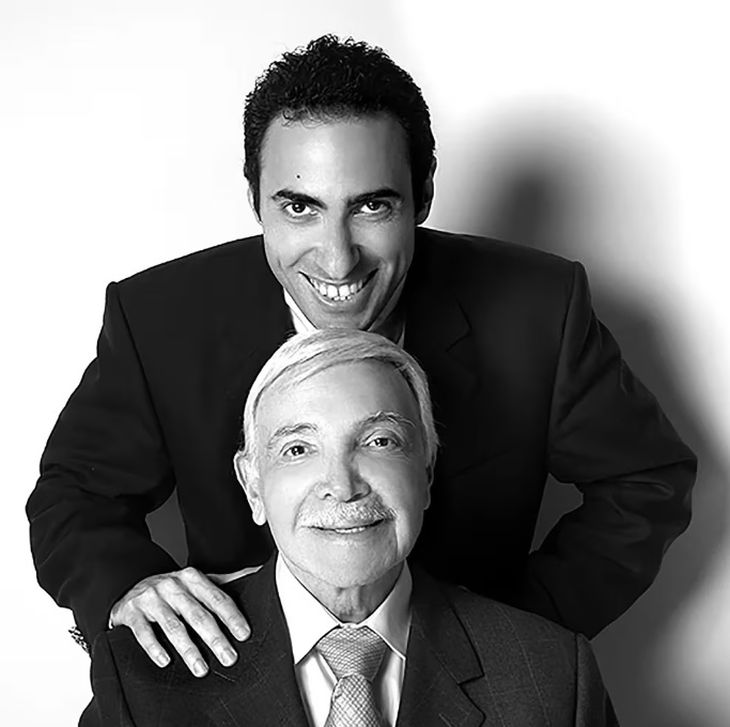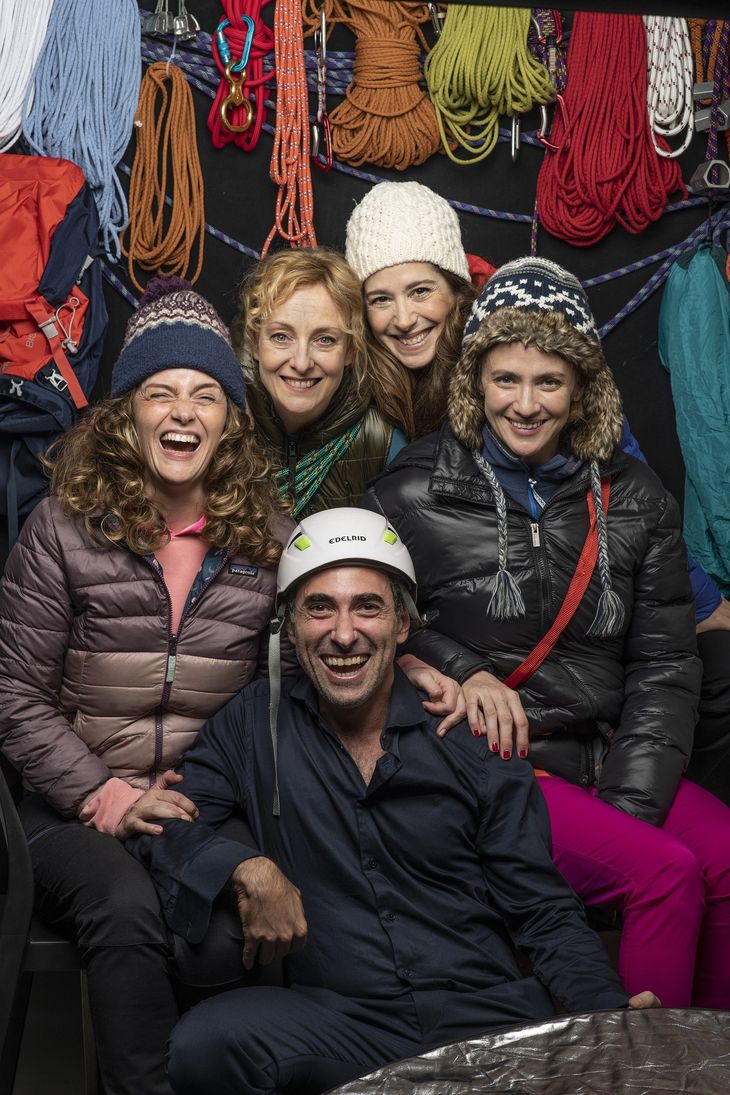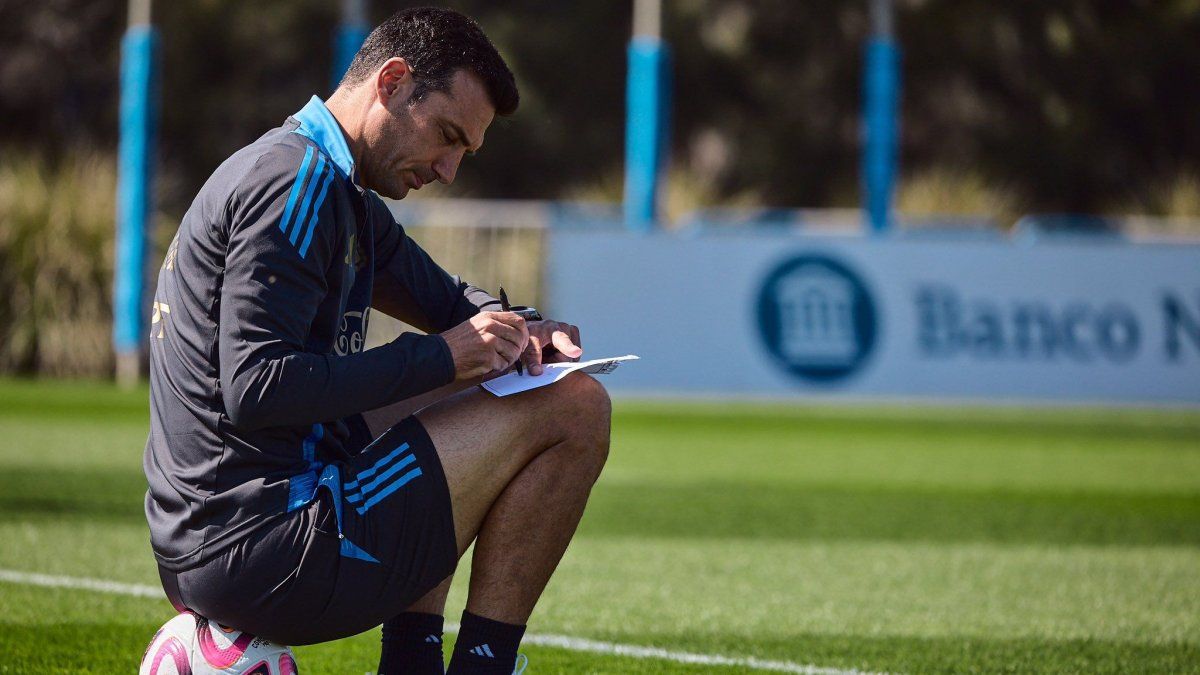“Just because a play has worked abroad doesn’t mean it will work here. There’s a huge amount of work to be done in terms of adaptation. The public is once again taking refuge in the theatre to meet its actors due to the lack of fiction on TV. They are also eager to discover new names,” says the producer Diego Romay, son of the legendary television producer Alejandro Romaywho was the founder of Canal 9 Libertad, the cradle of fiction in Argentina and the ideologist of memorable TV programs such as “Great values of tango” either “Music in freedom”, among many others.
Owner of the El Nacional theater with his family, Diego Romay debuted as a producer “Fitz Roy, mountain secrets”, from Catalan Jordi Galceran (“The Gronholm Method”) with performances by Leonora Balcarce, Mara Bestelli, Laura Novoa and Romina Richiunder the direction of Mariana Chaud. It can be seen at the Metropolitan from Thursday to Sunday. We spoke with Romay.
Journalist: What attracted you to this text to buy the rights and produce it?
Diego Romay: Galcerán puts his characters in situations of great adversity. Something similar happened in the Gronholm Method, this is perhaps the most paradigmatic work because it puts four friends at 1700 meters high, on a rock halfway up and the work takes place in that rest. The place already requires understanding that the confessions that will take place are crossed by the madness of the mountain. This made me think about achieving extraordinary results with the help of important relationships. The work puts the differences into play, one is controlling, the other more delirious, and raises the question of how these links are woven at height.
Q: Where did you see her?
DR: In Barcelona, in Catalan, but I had already read the script so I could understand it. There is a whole poetic quality to that desire to rise and achieve this together. They are empowered women and it is so epic and hopeful that it made me want to produce it in Argentina.
Fitz Roy poster with Diego Romay.jpg
The actresses and producer Diego Romay.
Q: How did you put together the team of actresses and director?
DR: It wasn’t easy. You believe in ideals, you go with a list of actresses and it never ends up being what you imagined. There are many great actresses who are self-managed, with their own projects, they want to write their own material, so they reject works. There is a big movement to build their own thing and they say they want to defend that and it’s great. But then things start to settle and other figures appear and the actresses themselves who commit themselves end up suggesting people to work with.
Q: How do you see the theatre?
DR: We had a difficult first semester, but the lack of fiction on TV has made the public take refuge in the theatre to meet its actors. The value of independent theatre makes the public eager to discover new people. Before, it was the figure, which now also attracts attention and will always be like that, but, for example, Mara Bestelli has an impact and people value discovering her because she is less known than Laura Novoa. There is a need for new figures, to take refuge in this temple we call theatre and there is a strong resurgence. I do a lot of theatre in Spain, and I see that Argentine theatre is a beacon.
Q: And what is theatre like in Spain?
DR: It is in crisis because their strong figures are on the platforms and do not do theatre. If they premiere, they do it for a month and cannot be installed. Our partner there is looking for big celebrities for plays that last 60 days, short plays because it is difficult to get traction. They value our creative seedbed and platform very much. In Madrid there are many of our actors working. For example, Claudio Tolcachir does not stop touring with his plays at all the festivals. We need to create that bridge with so many Argentine playwrights abroad.
Q: When evaluating Argentine dramaturgy, you nevertheless chose a Spanish text.
DR: I’m always looking and well this one appeared. I didn’t choose it because it was tested abroad, if it worked abroad it doesn’t mean it will work here. And there is a huge adaptation work like I did with Fitz Roy, you don’t do copy paste and release it, you have to work before. I was very attached to this material and when I worked with Dany Cúparo on the play we thought that the girls had to be affected by the lack of oxygen, their personalities were taken to the limit and that is not in the Catalan version.
Q: Returning to local texts, what projects do you have?
DR: I want to organize a theater festival at El Nacional, which will be the home of Argentine theater and organize a strong independent theater festival of short plays, with a jury of notables, adding authors, journalists, a team of curators that allows us to start there and continue. There was a time in the 70s of Argentine short theater with short plays, now there is Microteatro but this phenomenon of half-hour plays can be like short and feature films in cinema. It gives the author the possibility of testing his materials.
DR with AR.jpg

Q: More projects?
DR: Bringing “Billy Eliot” to Argentina, not intended as a children’s play, is a work that speaks of the boy’s connection with his dead mother, with his grandmother with Alzheimer’s, with his authoritarian and sexist father, the dance teacher, who is like a mother.
Source: Ambito
I am an author and journalist who has worked in the entertainment industry for over a decade. I currently work as a news editor at a major news website, and my focus is on covering the latest trends in entertainment. I also write occasional pieces for other outlets, and have authored two books about the entertainment industry.



